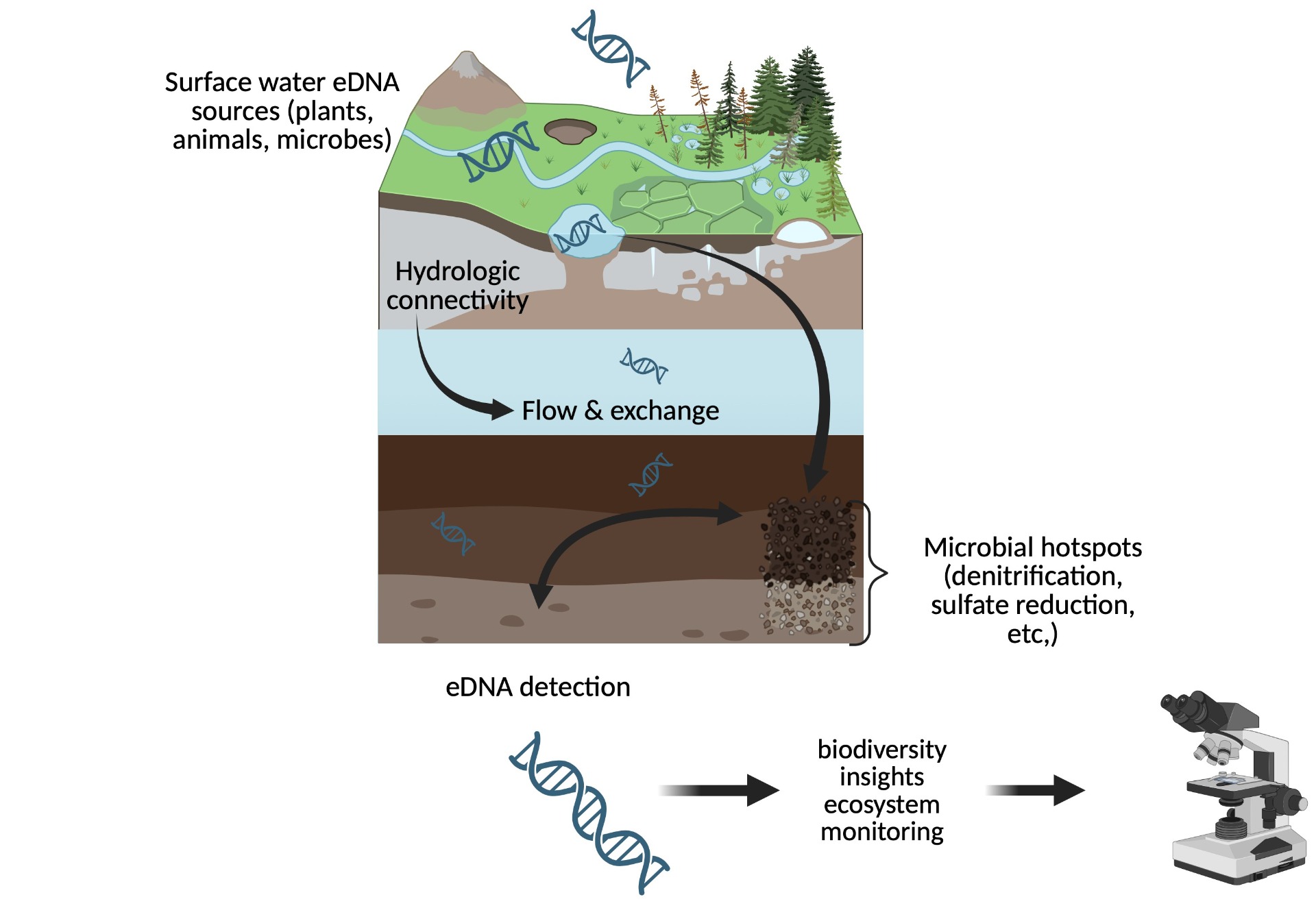Envision entering a time travel vehicle for the historical trajectory of water—from its cosmological origin to its unpredictable tomorrow. Prepare yourself since this mission spans billions of years traveling through our planet and early civilizations as well as today's crisis and future challenges.
Environmental DNA and Biological Hydrogeology

Recent advances in molecular ecology have introduced a novel tool to hydrogeological research: environmental DNA (eDNA). By capturing genetic material shed by organisms into their environment, eDNA enables the detection of biological presence in aquatic systems—without requiring the physical capture of the organisms themselves.
As highlighted by researchers, eDNA offers a powerful pathway to integrate hydrological connectivity and biological diversity. In both surface and subsurface systems, eDNA can function as a biological tracer, revealing not only species composition but also flow directions, exchange processes, and ecological interactions across hydrological compartments.
In the context of biological hydrogeology, eDNA unlocks new potential for understanding life in subterranean environments.
Aquifers, long regarded as chemically reactive but biologically inert, are now reconsidered as dynamic ecosystems, where microbial communities mediate key biogeochemical processes such as denitrification, sulfate reduction, and metal cycling.
The deployment of eDNA in hydrogeological studies marks a shift toward multidimensional monitoring, coupling chemical, physical, and biological datasets. This integrative approach is particularly relevant in anthropogenically stressed hydrogeological settings—such as industrial or agricultural zones—where traditional monitoring may overlook early biological signals of degradation or resilience.
In short, water is no longer viewed merely as a transport medium. Through eDNA, it becomes a carrier of memory, biodiversity, and molecular signals, offering unprecedented resolution into the living dimension of groundwater systems.
BY Maria Nefeli Georgaki

Maria Nefeli Georgaki is currently a Ph.D. candidate in the Department of Chemical Engineering and a scientific associate in the Department of Medicine at Aristotle University of Thessaloniki. Her research interests include medical hydrology, water resource management and safety, solid and liquid waste disposal, environmental management and sustainable development, and human health quality. She is a graduate from the Department of Geology at Aristotle University of Thessaloniki and holds a Master's Degree (MSc) in Applied and Environmental Geology with a specialization in "Mineral Resources and Environment" from the same department.
Latest posts in our blog
Be the first to read what's new!
Recent advances in molecular ecology have introduced a novel tool to hydrogeological research: environmental DNA (eDNA). By capturing genetic material shed by organisms into their environment, eDNA enables the detection of biological presence in aquatic systems—without requiring the physical capture of the organisms themselves.
How To (Part 1)
Choosing the Right Methodology in Hydrogeological Research: A Guide for Young Researchers
The Greek Young Hydrological Society was founded in 2024 to establish a dynamic and supportive network of early-career scientists united by a shared passion about hydrology and water related topics.


